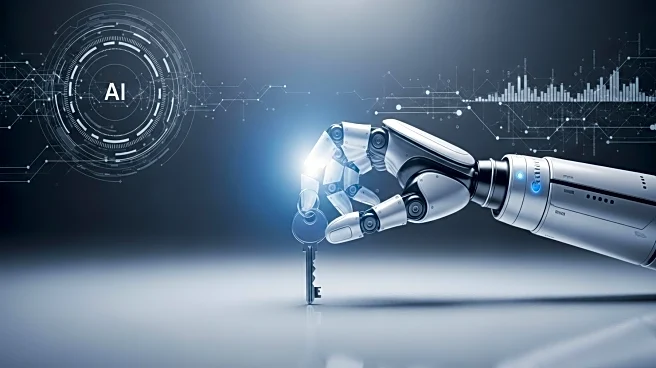What's Happening?
Artificial intelligence is reshaping the workforce, prompting questions about job security and the future of work. While some roles, particularly those requiring physical skills, empathy, and judgment, remain insulated from automation, others are more vulnerable. Jobs in public service, healthcare, and law are considered safe due to their reliance on human interaction and regulatory requirements. Conversely, roles involving routine knowledge work, such as transcription and scheduling, are at higher risk of automation. AI is expected to augment rather than replace certain jobs, enhancing efficiency and allowing workers to focus on more complex tasks.
Why It's Important?
The impact of AI on the workforce is a critical consideration for both employers and employees. Understanding which jobs are safe and which are at risk helps guide career planning and workforce development strategies. As AI technology advances, workers in roles requiring human presence and judgment will remain essential, while those in repetitive tasks may need to adapt to new responsibilities. For employers, strategic planning is crucial to determine which roles require human presence and which can be automated, ensuring a balanced and efficient workforce.
What's Next?
As AI continues to evolve, workers may need to focus on developing skills that complement technology, such as problem-solving and interpersonal communication. Employers might invest in training programs to help employees adapt to changing job requirements and leverage AI to enhance productivity. The ongoing integration of AI into various industries will likely lead to new opportunities and challenges, prompting continuous evaluation of workforce strategies.








